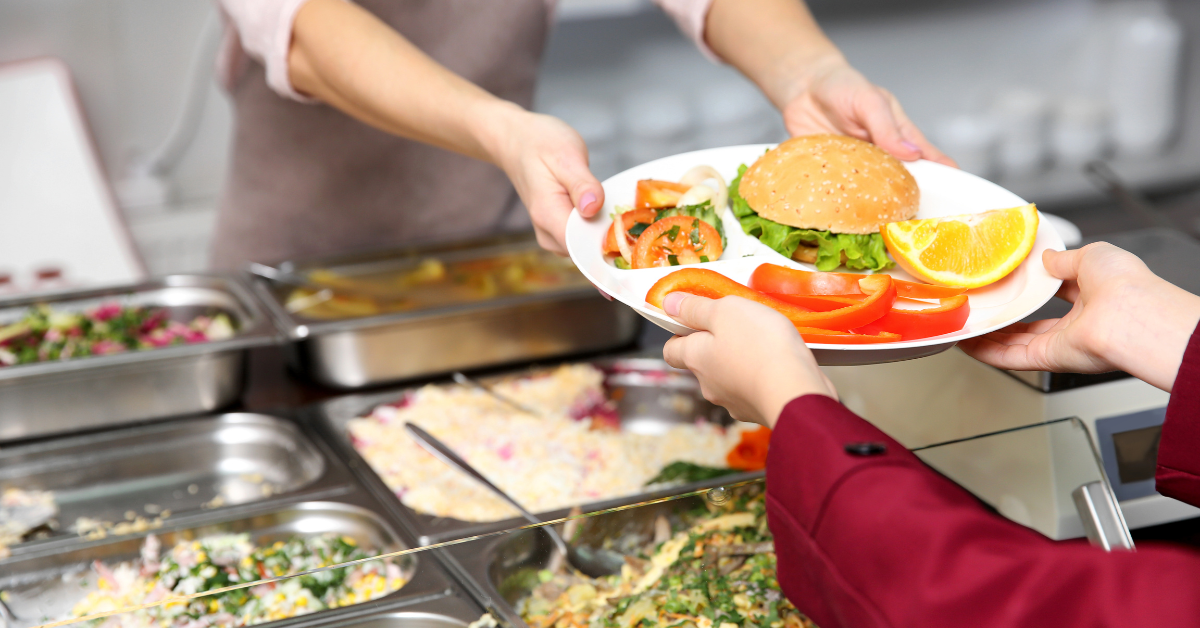Japanese school lunches play an important role in both nutrition and education. In recent years, the number of foreign students has increased, creating a need for meals that respect religious and cultural backgrounds. One such example is the halal school lunch.
What is Halal School Lunch
A halal school lunch is a meal prepared with ingredients and cooking methods permitted by Islamic teachings, so that Muslim children can eat safely. In Islam, food that is allowed is called halal, while food that is forbidden is called haram. These are not just food rules but are deeply tied to faith and daily life, making them essential for Muslim students.
School lunches are an important part of children’s growth and health. If a meal includes non-halal ingredients, Muslim children cannot eat it safely and may be forced to bring lunch from home. Sharing the same food with classmates is not only about nutrition but also helps build friendships and fosters cultural understanding. Therefore, introducing halal lunches in schools carries great educational value.
Permitted and Prohibited Foods in Halal
When providing halal lunches, choosing the right ingredients is essential. The table below shows typical examples of what is halal and what is haram.
| Category | Allowed (Halal) | Forbidden (Haram) |
|---|---|---|
| Meat | Beef, chicken (halal-certified) | Pork, dog meat |
| Drinks | Water, juice, milk | Alcoholic drinks |
| Seasoning | Salt, sugar, vinegar (without alcohol) | Sake, mirin, alcohol-based sauces |
| Others | Vegetables, fruits, grains | Blood, rotten food |
Pork and alcohol are strictly prohibited. For example, sausages or sweets made with gelatin must be checked carefully. On the other hand, vegetables, rice, and fruits are generally halal, making them safe and easy to include in menus.
Cooking practices also matter. Using the same utensils for non-halal and halal food can cause contamination. To prevent this, many schools use separate cooking tools dedicated to halal food.
Efforts and Practices in Halal School Lunch
Implementing halal school lunches in Japan requires effort and planning. The most important step is securing certified halal ingredients. By using halal-certified meats and condiments, schools can give children and parents peace of mind.
Cooking also requires special care. For instance, chicken curry must be made with halal-certified chicken, and seasoning must exclude alcohol. Many schools now prepare dedicated kitchen tools for halal meals.
Halal lunches are not just about providing safe meals; they are also an opportunity to teach students about cultural diversity and respect for religion. Through discussions with parents and surveys, schools can find practical ways to integrate halal lunches while promoting international understanding among students.
Examples of Halal School Lunch Menus
Halal school lunches adapt traditional Japanese meals while following Islamic dietary rules. For example, in dishes like meat and potatoes, pork is replaced with halal beef, and seasonings like mirin are avoided, using sugar and soy sauce instead.
Examples of halal school menus include:
- Halal chicken curry rice
- Stewed vegetables (no pork or mirin used)
- Fried white fish
- Seasonal fruits
- Milk
Such menus are safe for Muslim children and remain familiar and tasty for Japanese children. By combining Japanese-style dishes with globally popular meals like curry and chicken, schools can create menus that are enjoyable for everyone.
Challenges of Halal School Lunch
Despite its benefits, halal school lunch faces several challenges. The biggest issue is cost. Halal-certified meat and seasonings are usually more expensive than regular ones, raising concerns for schools and local governments.
Another challenge is supply. In big cities, halal food is relatively easy to find, but in rural areas, stable procurement can be difficult. Training for kitchen staff is also essential to ensure they understand halal rules and prepare food correctly.
Lack of understanding in schools can also cause problems. Sometimes halal meals are misunderstood as special treatment. To solve this, schools must improve awareness and foster respect for religious and cultural diversity among all staff and students.
Importance and Future of Halal School Lunch
Halal school lunch is not only about food safety but also about multicultural coexistence. Schools are a place where children learn to respect differences, and halal lunches help build this awareness naturally. In a globalizing Japan, providing safe food for children of all backgrounds is a priority.
Looking ahead, municipalities may work together to standardize halal lunch programs. Creating halal recipe collections or introducing cooperative purchasing systems can reduce costs and ensure stable supply. Furthermore, halal lunches can be used as educational tools to teach children about cultural differences and mutual respect.
Conclusion
Halal school lunch is essential for ensuring that Muslim children can fully participate in school life. By respecting religious rules and adapting Japanese food culture, schools can create meals that all children enjoy.
The significance goes beyond meals. It is a step toward cultural understanding and mutual respect, which is increasingly important in today’s global society. Halal school lunches are not just about nutrition but about building an inclusive and harmonious environment for the future.






